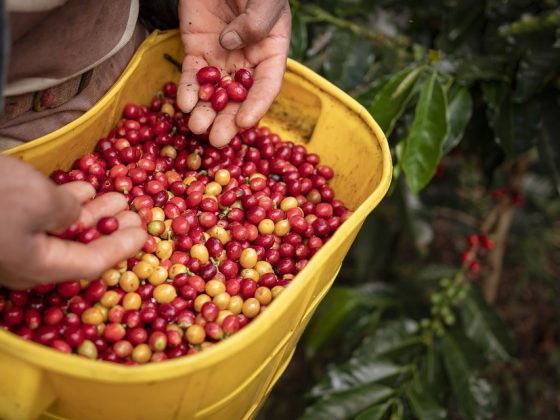In recent years, there has been a growing interest in what has been dubbed the “coffee trail” – a journey that allows travelers to explore the origins of their favorite beverage. From the lush coffee plantations of Latin America to the bustling coffee houses of Europe, the coffee trail offers a taste of adventure in every cup.
For many coffee enthusiasts, the journey along the coffee trail begins in countries such as Colombia, Brazil, and Costa Rica, where some of the world's finest coffee beans are grown. Here, visitors can take guided tours of coffee farms, learn about the coffee-growing process, and even pick their own beans. From the bright red cherries to the roasted beans, every step of the journey provides insight into the dedication and hard work that goes into producing the perfect cup of coffee.
But the coffee trail is not limited to Latin America. In fact, coffee has a long and rich history in countries around the world, from Africa to Asia to the Middle East. In Ethiopia, widely regarded as the birthplace of coffee, visitors can experience traditional coffee ceremonies and learn about the cultural significance of coffee in Ethiopian society. In Yemen, where coffee was first cultivated on the Arabian Peninsula, travelers can visit ancient coffee plantations and sample some of the world's most unique and sought-after coffee varieties.
As the coffee trail winds its way through different countries and cultures, travelers are treated to a diverse array of coffee experiences. In Italy, for example, visitors can sip espresso in bustling cafes and learn about the art of coffee-making from passionate baristas. In Vietnam, they can taste the famous Vietnamese iced coffee, made with condensed milk and bold robusta beans. And in Japan, they can enjoy a traditional matcha latte made with finely ground green tea.
But the coffee trail is not just about tasting different coffees – it's also about connecting with the people behind the brew. In many coffee-growing regions, visitors have the opportunity to meet farmers and producers, learn about sustainable farming practices, and support local communities. By buying directly from farmers or visiting fair trade coffee cooperatives, travelers can help ensure that coffee farmers receive fair prices for their crops and are able to support their families.
For those looking to embark on their own coffee trail adventure, there are a few key things to keep in mind. First and foremost, it's important to do some research beforehand to learn about the different coffee-growing regions and the best times to visit. Many countries have specific coffee harvest seasons, so planning your trip accordingly can help you experience the full coffee-making process from bean to cup.
Additionally, it's a good idea to book tours or visit coffee farms through reputable organizations that support sustainable practices and fair trade. This not only ensures a more authentic and ethical experience but also helps support the livelihoods of coffee farmers and their families.
So whether you're a die-hard coffee aficionado or simply curious to learn more about the world's most popular beverage, the coffee trail offers a unique and unforgettable journey. From the rolling hills of Central America to the bustling streets of Europe, each cup of coffee tells a story of tradition, culture, and craftsmanship. So grab your passport, pack your bags, and get ready to explore the coffee trail – a taste of adventure in every cup.
FAQs:
1. What is the best time of year to visit coffee-growing regions?
The best time to visit coffee-growing regions depends on the specific country and its harvest season. In general, many countries in Latin America harvest coffee between November and March, while countries in Africa and Asia may have different timing. It's best to research each region's specific harvest season before planning your trip.
2. What are some tips for supporting sustainable and fair trade practices along the coffee trail?
One of the best ways to support sustainable and fair trade practices is to buy directly from farmers or visit fair trade coffee cooperatives. Look for certifications such as Fair Trade or Rainforest Alliance to ensure that your coffee is ethically sourced. Additionally, consider supporting organizations that promote sustainable farming practices and community development in coffee-growing regions.
3. Are there any health benefits to drinking coffee?
Coffee has been associated with a range of health benefits, including improved cognitive function, reduced risk of certain diseases such as Parkinson's and Alzheimer's, and even increased longevity. However, it's important to consume coffee in moderation and be mindful of any potential side effects, such as increased heart rate or anxiety. As always, consult with a healthcare professional if you have any concerns about your coffee consumption.











